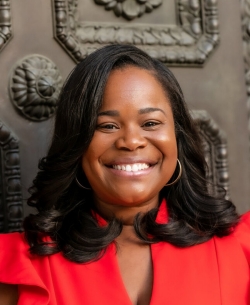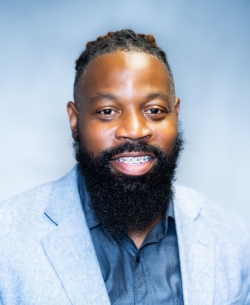
This presentation will discuss cancel culture, how marginalized communities have used cell phones to hasten and popularize the practice of public shaming, and the implications for community circulation of knowledge.

Website: https://www.allissavrichardson.com/
Twitter: @DrAlliRich
Dr. Allissa V. Richardson is an Associate Professor of Journalism at the University of Southern California’s Annenberg School. She researches how African Americans use mobile and social media to produce innovative forms of journalism — especially in times of crisis. Dr. Richardson is the author of Bearing Witness While Black: African Americans, Smartphones and the New Protest #Journalism (Oxford University Press, 2020). The prize-winning book explores the lives of 15 mobile journalist-activists who documented the Black Lives Matter movement using only their smartphones and Twitter, from 2014 to 2018. Dr. Richardson is considered a pioneer in mobile journalism (MOJO), having launched the first smartphone-only college newsroom in 2010. The MOJO Lab, based on the campus of Morgan State University in Baltimore, was the only American college to boast such a program at the time.

Website: https://www.ou.edu/cas/wgs/people/faculty/rodney-bates
Twitter: @theRealDrRodB
Dr. Bates is Assistant Professor in Women’s and Gender Studies and Director of the Center for Social Justice at the University of Oklahoma. He completed his Ph.D. in Adult and Higher Education at OU in 2017. Dr. Bates’s research focuses on African American males’ experiences at historically white institutions, as well as on dominant and resistant notions of success in higher education. Dr. Bates’s areas of interest include unpacking the inequality of student experiences, understanding important implications for broadening equity and inclusion for underrepresented populations, and student of color access to higher education. His research and practice speaks to the need to fully include marginalized students in institutional decision-making, curriculum development, and the day-to-day leadership and operations of our institutions.